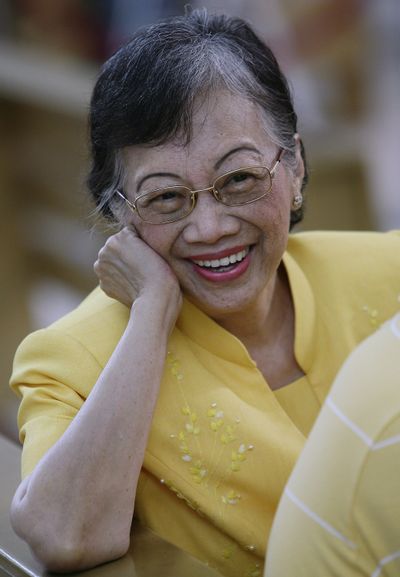Corazon Aquino dead at 76

MANILA, Philippines — Former President Corazon Aquino, who swept away a dictator with a “people power” revolt and then sustained democracy by fighting off seven coup attempts in six years, died on Saturday, her son said. She was 76.
The uprising she led in 1986 ended the repressive 20-year regime of Ferdinand Marcos and inspired nonviolent protests across the globe, including those that ended Communist rule in eastern Europe.
But she struggled in office to meet high public expectations. Her land redistribution program fell short of ending economic domination by the landed elite, including her own family. Her leadership, especially in social and economic reform, was often indecisive, leaving many of her closest allies disillusioned by the end of her term.
Still, the bespectacled, smiling woman in her trademark yellow dress remained beloved in the Philippines, where she was affectionately referred to as “Tita (Auntie) Cory.”
“She was headstrong and single-minded in one goal, and that was to remove all vestiges of an entrenched dictatorship,” Raul C. Pangalangan, former dean of the Law School at the University of the Philippines, said in 2009. “We all owe her in a big way.”
Her son, Sen. Benigno “Noynoy” Aquino III, said his mother died at 3:18 a.m. Saturday (1918 GMT Friday).
Aquino was diagnosed with advanced colon cancer last year and confined to a Manila hospital for more than a month. Her son said the cancer had spread to other organs and she was too weak to continue her chemotherapy.
Aquino’s unlikely rise began in 1983 when her husband, opposition leader Benigno “Ninoy” Aquino Jr., was assassinated on the tarmac of Manila’s international airport as he returned from exile in the United States to challenge Marcos, his longtime adversary.
The killing enraged many Filipinos and unleashed a broad-based opposition movement that thrust Aquino into the role of national leader.
“I don’t know anything about the presidency,” she declared in 1985, a year before she agreed to run against Marcos, uniting the fractious opposition, the business community, and later the armed forces to drive the dictator out.